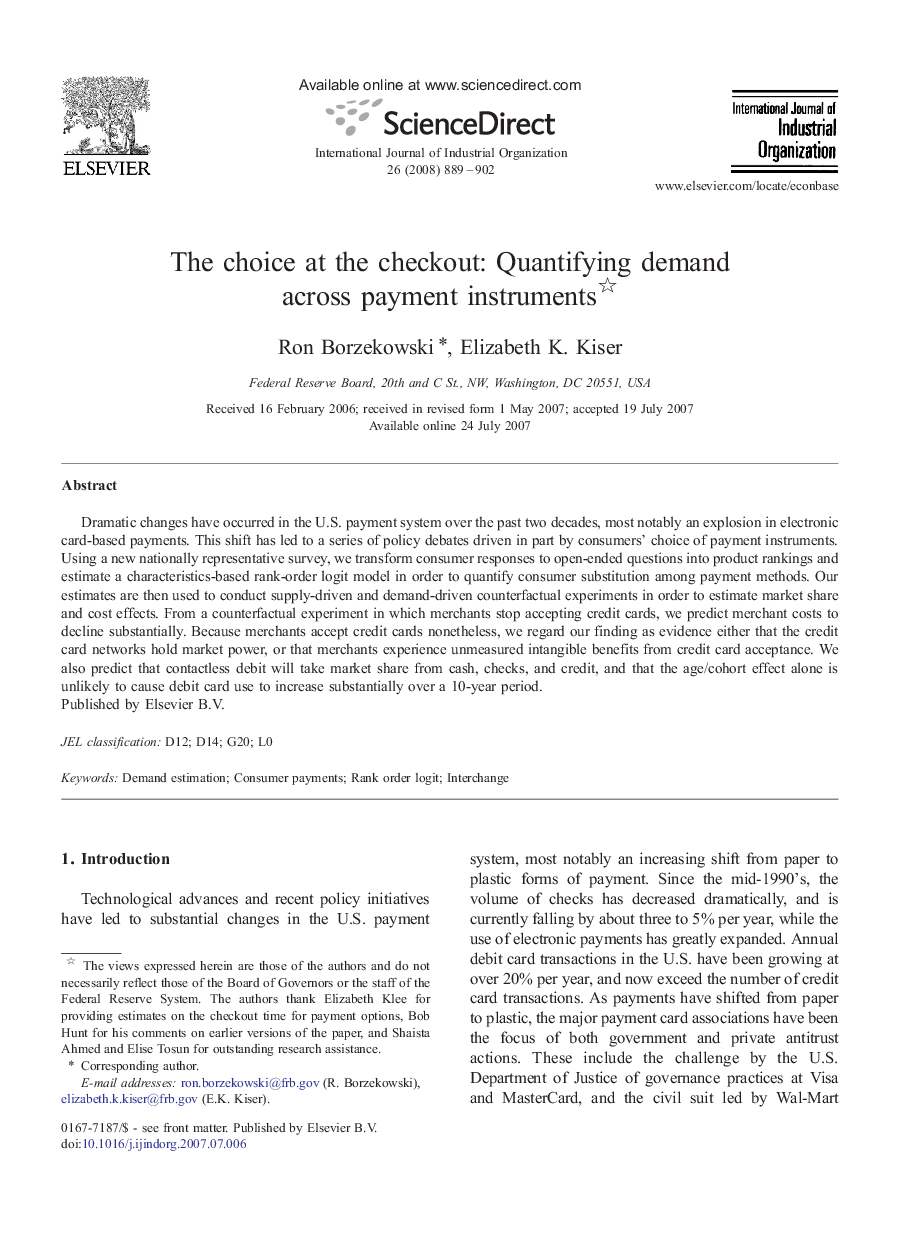| Article ID | Journal | Published Year | Pages | File Type |
|---|---|---|---|---|
| 5078735 | International Journal of Industrial Organization | 2008 | 14 Pages |
Abstract
Dramatic changes have occurred in the U.S. payment system over the past two decades, most notably an explosion in electronic card-based payments. This shift has led to a series of policy debates driven in part by consumers' choice of payment instruments. Using a new nationally representative survey, we transform consumer responses to open-ended questions into product rankings and estimate a characteristics-based rank-order logit model in order to quantify consumer substitution among payment methods. Our estimates are then used to conduct supply-driven and demand-driven counterfactual experiments in order to estimate market share and cost effects. From a counterfactual experiment in which merchants stop accepting credit cards, we predict merchant costs to decline substantially. Because merchants accept credit cards nonetheless, we regard our finding as evidence either that the credit card networks hold market power, or that merchants experience unmeasured intangible benefits from credit card acceptance. We also predict that contactless debit will take market share from cash, checks, and credit, and that the age/cohort effect alone is unlikely to cause debit card use to increase substantially over a 10-year period.
Related Topics
Social Sciences and Humanities
Economics, Econometrics and Finance
Economics and Econometrics
Authors
Ron Borzekowski, Elizabeth K. Kiser,
